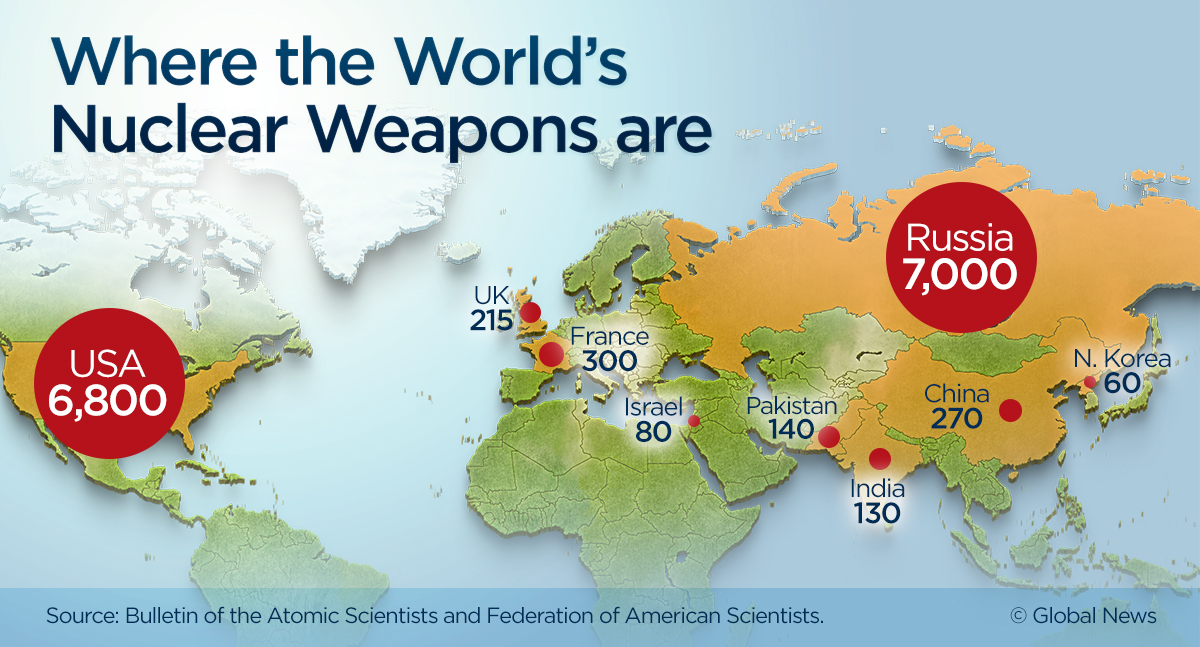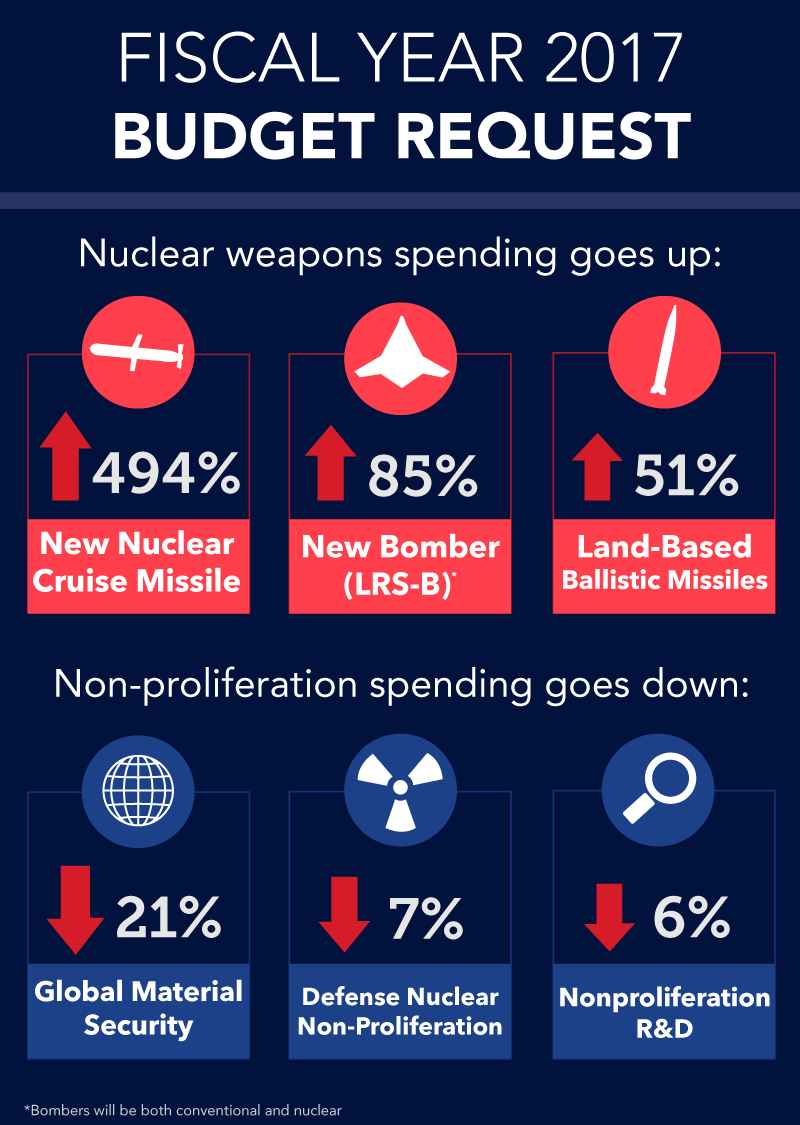Tensions between the United States and North Korea continue to rise, as the U.S. took proactive measures Thursday and flew some of its most advanced warplanes in bombing drills over the Korean peninsula.

It was another warning after North Korea launched a mid-range ballistic missile designed to carry nuclear bombs over Japan earlier this week. The isolated nation has also threatened a nuclear strike against the U.S. territory of Guam.
WATCH: U.S. bombers fly over Korean peninsula after latest North Korea launch

Experts aren’t exactly sure how many deliverable nuclear weapons North Korea possesses.
The Institute for Science and International Security estimates the hermit kingdom could have between 13 and 30 nuclear weapons. However, a July 2017 report by the U.S. Defense Intelligence Agency calculated that North Korea has 60 nuclear devices, according to The Washington Post.
Worldwide, there are around 14,935 warheads, according to Federation of American Scientists.

Get daily National news
Below is a map that shows the best estimates of which countries have nuclear weapons and how many they have.
Note: The number given is the total inventory, which counts warheads in the military stockpile as well as retired, but still intact, warheads awaiting dismantlement.
Of these 14,930 nuclear weapons, 9,400 are in the military stockpiles and the rest are awaiting dismantlement. Around 1,800 U.S., Russian, British and French warheads are on high alert, ready for use on short notice.
Approximately 93 per cent of all nuclear warheads are owned by Russia and the U.S, who each have roughly 4,000-4,500 warheads in their military stockpiles (warheads in the custody of the military and earmarked for use by military forces).
WATCH: North Korea says it’s gearing up to strike U.S. territory Guam

Nuclear arsenals decreasing
The number of nuclear weapons in the world has declined significantly since the Cold War: down from a peak of approximately 70,300 in 1986 to an estimated 14,900 in 2017, according to the Federation of American Scientists.
The United States, Russia and Britain are reducing their warhead inventories. The size of the U.S. nuclear arsenal has decreased drastically since it peaked at 31,255 nuclear weapons in 1967, according to the Center for Arms Control and Non-Proliferation.
Although the number of nuclear weapons is decreasing, spending is on the rise in 2017, according to the Center.
In February, U.S. President Donald Trump said he is going to build up the U.S. nuclear arsenal to ensure it is at the “top of the pack,” saying the U.S. has fallen behind in its atomic weapons capacity.
Over the next decade, the U.S. government plans to spend nearly $350 billion on modernizing and maintaining its nuclear forces and facilities.










Comments
Want to discuss? Please read our Commenting Policy first.